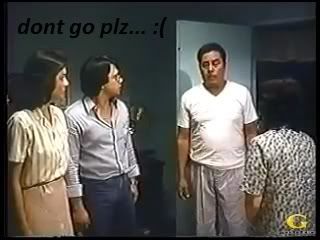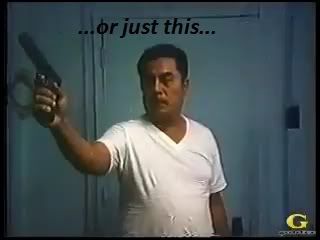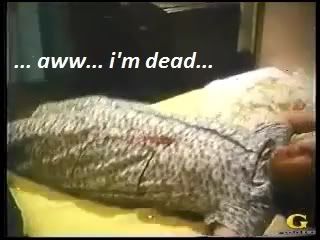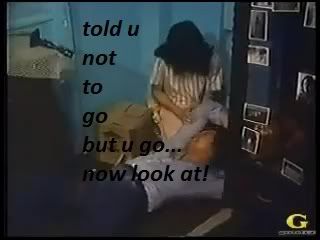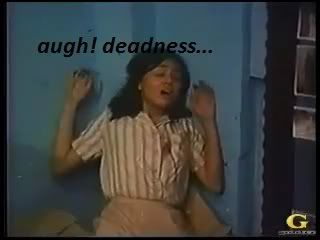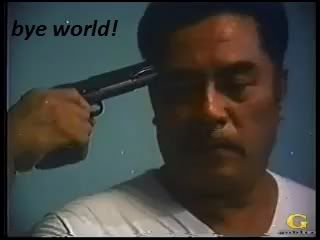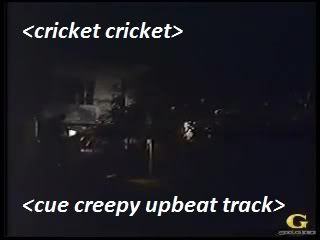You know what’s awesome about classic Filipino suspense thrillers? They are sufficiently creepy. Mike de Leon’s classic Kisapmata (The Blink of an Eye) is such an example. Starring future ABS-CBN Head honcho Charo Santos as well as an all-star-for-the-right-reasons cast of Vic Silayan, Charito Solis, Jay Ilagan, Ruben Rustia and Juan Rodrigo, the film takes its inspiration from the equally creepy book Reportage on Crime. Of course, since this is basically my second review of the film, I decided to do a standard review as well as a mini photo recap in the style of TV.com.
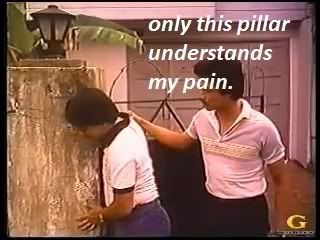
The film bears a strong resemblance to the true story portrayed in the book with certain licenses taken to make the story ‘tighter’ and add to the thrill factor. (Characters such as the bride and groom’s brothers were removed and the time span was lessened from months to mere days).
Beware spoilers after this…
…okay. The film starts with Charo’s family discussing her upcoming marriage with her father and mother. She states how she’s pregnant. Now you have to understand that THIS particular father is not the type that seems to be at all cool with giving his daughter away AT ALL. It wasn’t til the second screening that I realized what gave, that he let his daughter get hitched in the first place.
Dad Vic Silayan supplies all the sufficient creepiness I discussed earlier. In fact he is the black center of the entire film. Soon we realize just how double-faced he is and how this duality seems to also reflect on his wife and daughter. Clue #1 he talks to his future son-in-law as if he’s the most special guy in the world, as well as ignores him all in the span of two minutes-going back and forth.
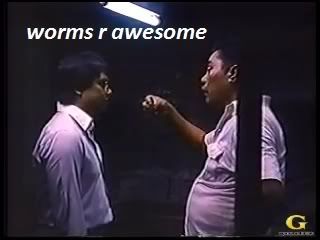
His parenting of course, is not at all unique. In fact, on the surface he is the definitive Filipino patriarch, scary as that may seem. And he exudes command with his mere presence.
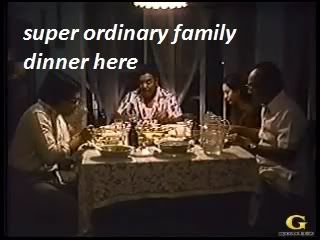
His power over his family is overwhelming and the weight of his presence causes any person in his house to buckle.
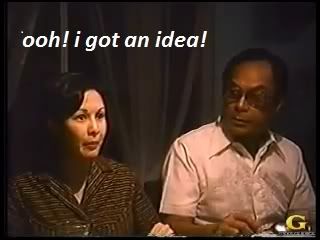
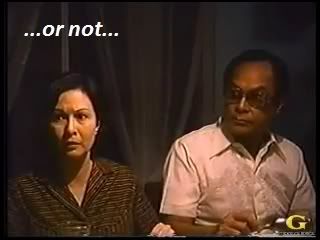
The book didn’t flat out detail an incest angle on the story but it’s something Kisapmata didn’t shy away from. While the point where most people noticed it was the blink-and-you’ll-miss-it hand-holding scene. At that point, I did consider the option but I didn’t let myself jump to the conclusion just yet. I tried to understand the film from the point-of-view of the outsider, in this case the groom-to-be Jay Ilagan. Besides, like I stated earlier, on second viewing, the hand-holding wasn’t after all the very first real clue.
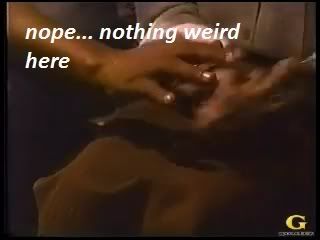
The scene however DOES firmly establish Charito Solis as the woman of the house, bequeathed with what seems to be the holy responsibilty of marrying her family and its darkest secrets into a functioning household. She knows EVERYTHING that happens in the house, and though she claims to have no power over it, in fact it is her resolve to keep the family together that is nurturing their own private hell.
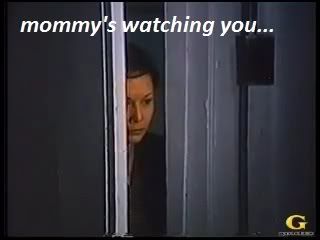
The sanctity of the family is so firmly established in this film that Charo’s character even refuses to completely tell her own diary everything! I mean, this is the girl’s most treasured keepsake! And the lack of information in her diary couldn’t possibly stem from a worry that her father might see it (given her conveniently broken doorknob lock)- after all, she still spoke of him in a hateful manner, albeit merely portraying him as anal retentive, neurotic and controlling. Her thoughts apparently remain the property of her dreams, wherein symbols portray a very dark, telling picture of what it is that is truly going on.
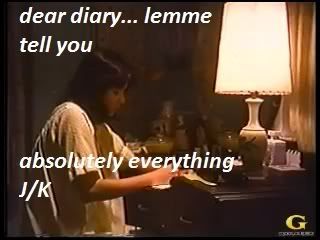
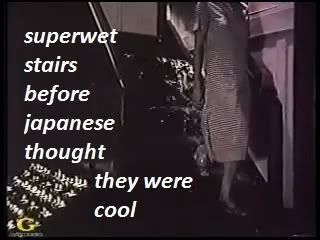
I really enjoyed the post-wedding sequences, especially the ones involving Jay Ilagan. After all, it was layer upon layer of ‘oh sh*t’ moments. From locked gates, to barred doors, an ignoring Father-in-Law, lights off and a missing bride. It really established how powerless Jay would be throughout the entire film almost, when it comes to the life of his new bride.
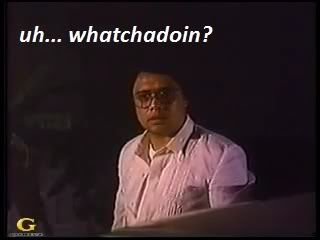
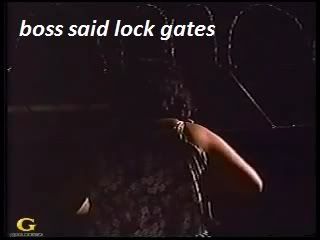
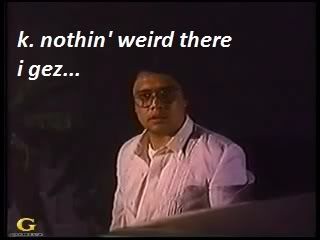
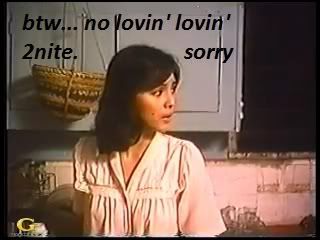
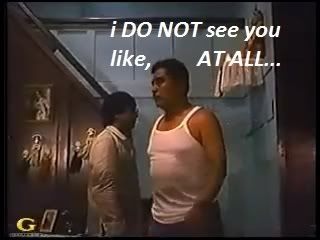
Of course, the groom should be lauded for not giving up right away. There were some attempts made at getting his way, but if you’re blocked at every turn, sometimes by your wife, no less, you sorta run out of options.
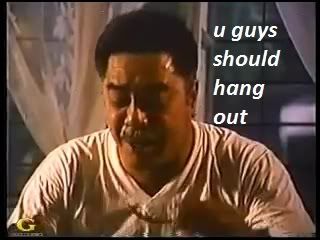
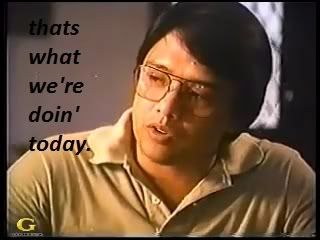
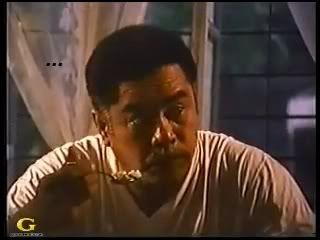
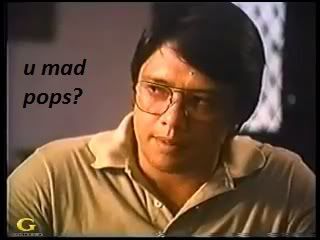
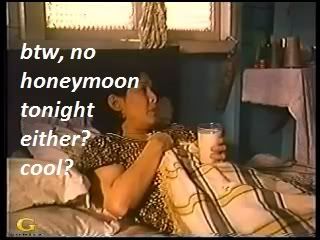
The way father and mother act, soon, it is seen that marriage is nothing serious to this family, at least not when put up against familial bond, or in this case patriarchal control. The groom soon finds himself inching further and further away from his wife and the house until eventually, he’s out of the house himself.
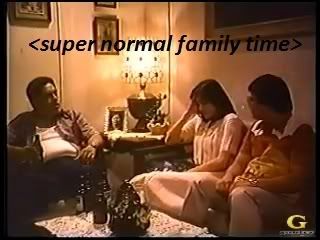
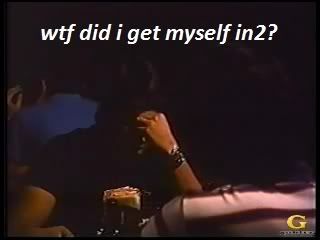
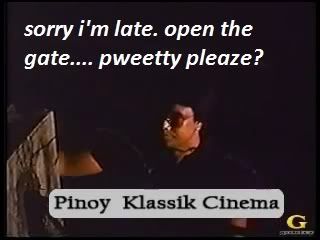
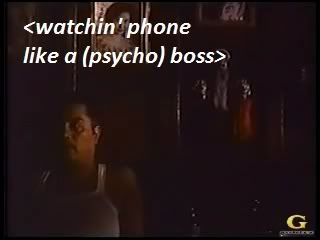
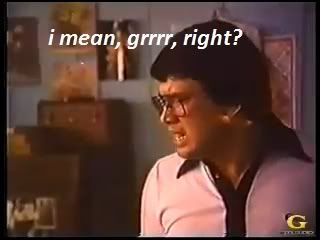
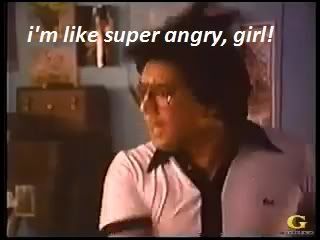
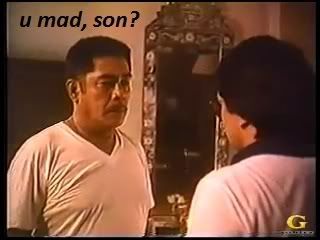

That duality/double-facedness I spoke of? It showed in Charo’s character as well. Her groom never felt an ounce of support during his entire ordeal, despite the fact that she obviously wanted things to be different than they were. This goes back to the concept of familial bonds, even in the strictest highly-disturbed sense. She does eventually work out her troubles on her own. You might want to have told your husband you were on his side all along, missy! But then again, there were secrets to protect.
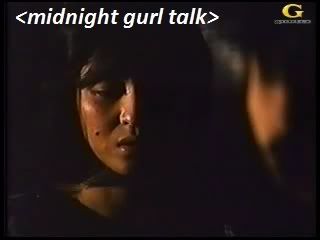
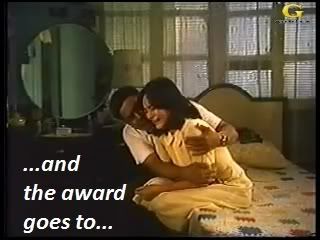
She even has her own action-escape scene where she goes all ALIAS on her dad and slips away unnoticed. (Though next time you might wanna not linger so long behind him if you’re trying to get away).
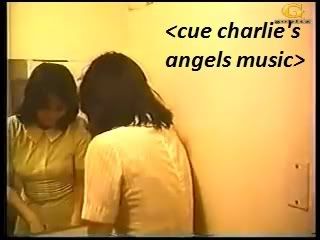
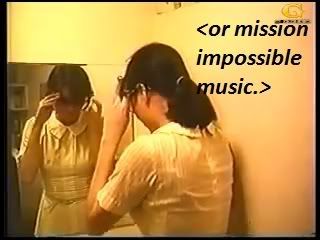
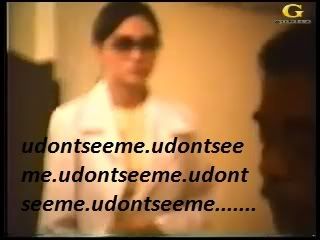
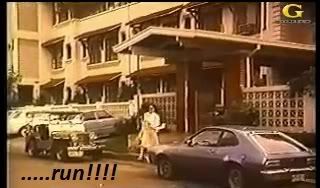
Dad’s resulting outbursts which involve firing the help and waving a gun around at his in-laws’ place are classic (unfortunate) Pinoy incidences. I mean who hasn’t heard a gun-waving story here anyway. Again, minus all the subtext, if he was merely Mr. Controlling Dad, many may view it as justifiable or at least incredibly common behavior. This just goes to show us how high a pedestal the Filipino patriarch sits on- that any action, in the name of family is somehow acceptable.
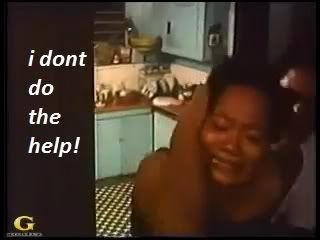
As the film draws nearer to a close, we get a glimpse of the future as designed by the bride and groom. Their destiny ends with her mother in the hospital and the couple up in flames. This film was rocking creepy audio effects and washed out black and whites way before Ring made it big!
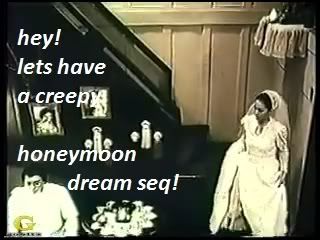
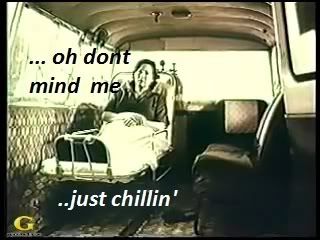


Throughout the film you just really get that feeling that the father is lord of all he surveys, including his wife, his daughter, his helper and now his son-in-law, and that he may do with them whatever he sees fit. This lordship (as I’ve spoken about in a previous review of the same film) almost brings the Filipino father up to the level of a God figure. Now I’m torn with the overlaid image of daddy Vic Silayan over a Jesus maquette either being a cheesy on-the-nose representation of the message he wanted to send, or if it was a bold comparison that deserves applause. Either way, the message came through loud and clear.
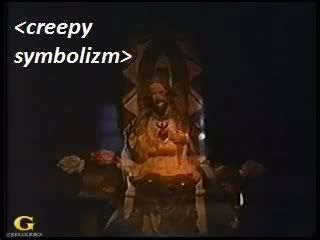
The ending is predictable. But I do not at all mean that in a bad way. There are movies that somehow you just know where they’re going- but it’s how it gets there that interests you. I mean hello, every single time we saw Daddy open his door or stay downstairs in the dark, we expected him to draw his gun. However, the emotional buildup and the ultimate revelation to Jay Ilagan’s character at the end were definitely worth the watch.
Of course, how we actually GOT to the ending still left many heads with the desire to be scratched. Really? You think it’s a good idea to reassert yourself in the devil’s den, given how you’re already in the clear? And for what essentially? A suitcase? Oh well, it DID actually happen somehow so we can’t fault the writers for it.
Overall this film deserves all the praise and accolades it had gotten and is worthy of your viewing time. It takes you back to the years when film was still a TRUE art in the Phillippines, in a widespread sense.

